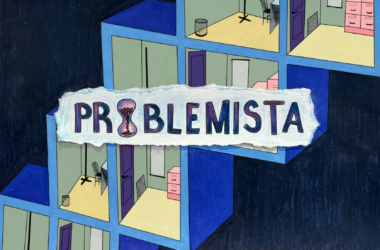Warning: Spoilers ahead.
In the wake of the wildly popular first two seasons, Netflix released the hotly anticipated third season of Sex Education on Sept. 17. While the previous seasons of the raunchy coming-of-age series navigated complex topics with frankness and charm, the latest installment’s 8-hour runtime is overstuffed with unresolved issues and shortcomings, failing to deliver on the promises made during its first and second seasons.
Season three strays from the show’s pre-established narrative, which centred around an illicit sex advice clinic run by the timid Otis Milburn (Asa Butterfield) and school rebel Maeve Wiley (Emma Mackey)—all under the shadow of sex therapist and overbearing mother Jean (Gillian Anderson). In many ways, the season’s sexually explicit opening encapsulates the show’s main theme: A raw and unapologetic expression of desire that extends beyond the scope of cisnormative and heteronormative sex. The presentation of virtual reality, costume and fantasy play, sexting, and webcamming represents the complexities of desire and sexual gratification. Absent of any cloud of shame, Sex Education’s subversive and progressive approach to representation of sexuality is rare among many coming-of-age stories.
The main conflict of the season comes from Moordale’s new principal, Hope Haddon (Jemima Kirke), who embodies patriarchal ideologies when she installs an outdated sex education curriculum that preaches abstinence and mandates uniforms. Hope’s strict enforcement of the school uniforms indirectly targets individuality and self-expression amongst the student body, and in doing so, enforces the gender binary. The portrayal of this new headteacher, whose youthful energy initially instills within students a sense of comfort and relatability, quickly becomes a source of oppression: Hope, as ironic as that name may be, enforces a sex-negative discourse with narrow-minded notions of inclusivity and acceptance that is hidden under a cloak of feminism and “hipness.”
In many ways, Hope’s presence embodies the tenets of heteronormative sexual prejudices. Much like many cultural values expressed today, the new head teacher aims to paint a pretty picture of acceptance and inclusivity on the surface, while dismissing important issues brought up by the students. Echoing derisive accusations commonly aimed at Generation Z, Hope attacks her students’ “fragility”—what she calls “identity-obsessed hysteria”—compared to the “real world.”
The show prevails in successfully portraying the complexities and vulnerabilities of all the characters in the main ensemble cast—an authenticity achieved in large part by entrusting the role of 2SLGBTQIA+ characters to queer actors.
However, Sex Education nonetheless causes its own downfall by overextending itself. Despite having successfully avoided it during its previous seasons, its intricate development of existing characters leaves little time to properly integrate new cast members, such as new character Cal (Dua Saleh). Cal, a non-binary student, is almost entirely defined by their gender identity and/or sexual orientation rather than their personality. Additionally, the show spends too much time on problems from past seasons and not enough time solving elaborate issues which would have been better incorporated over long intervals. Condensing them into one episode, oftentimes eclipsed by its simultaneous storylines, creates an eclectic, unsatisfying viewing experience.
Ultimately, the show’s frank discussions about sex, sexual orientation, and gender identity do not reach audiences as well as its prior two seasons. Sex Education provides unsatisfactory denouements by trying to do too much—it straddles a line between embracing diversity, and turning a blind eye to the complexities of individuality.










Pingback: ‘Intercourse Schooling’ season three is a strong, but overambitious, continuation - All Ten News